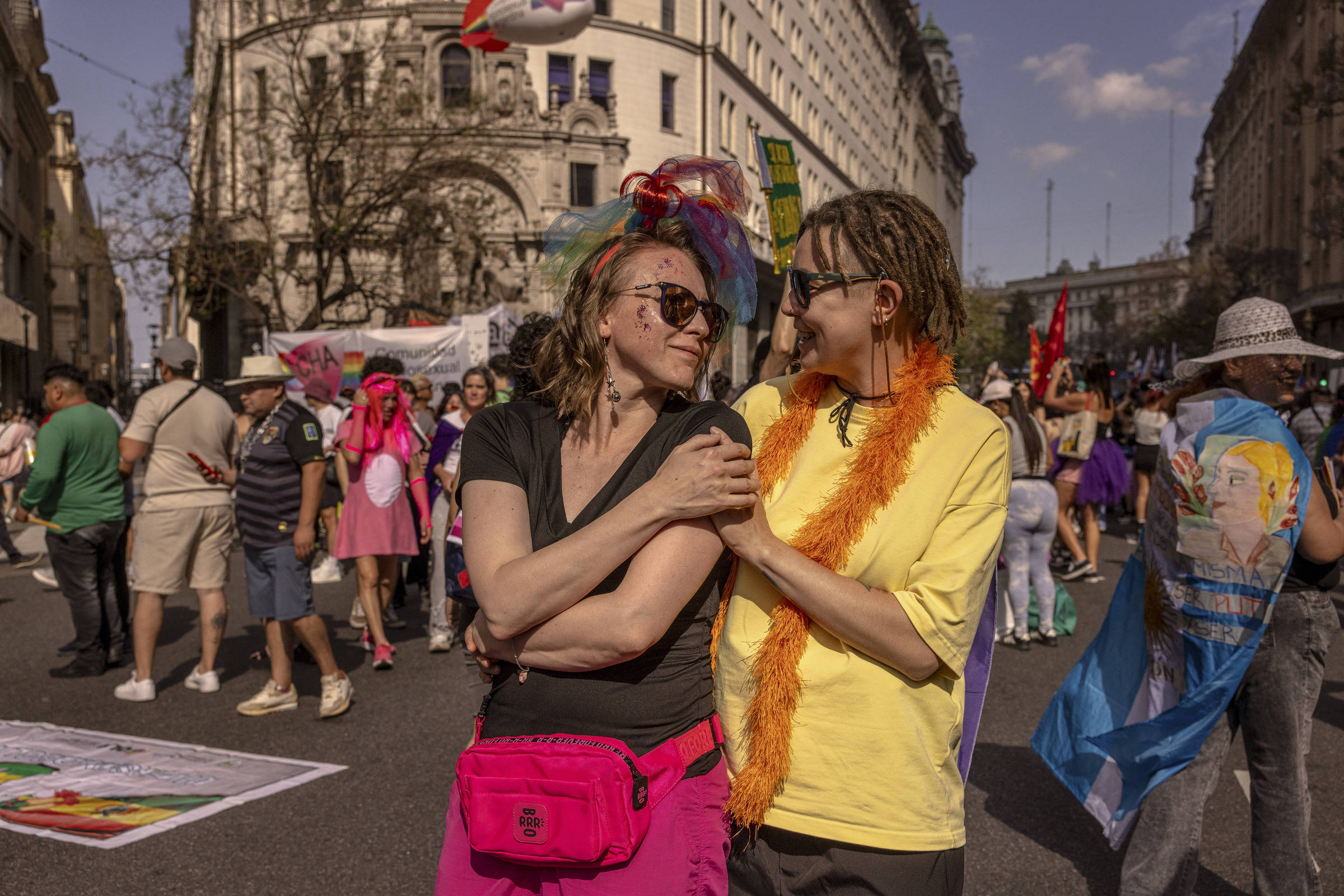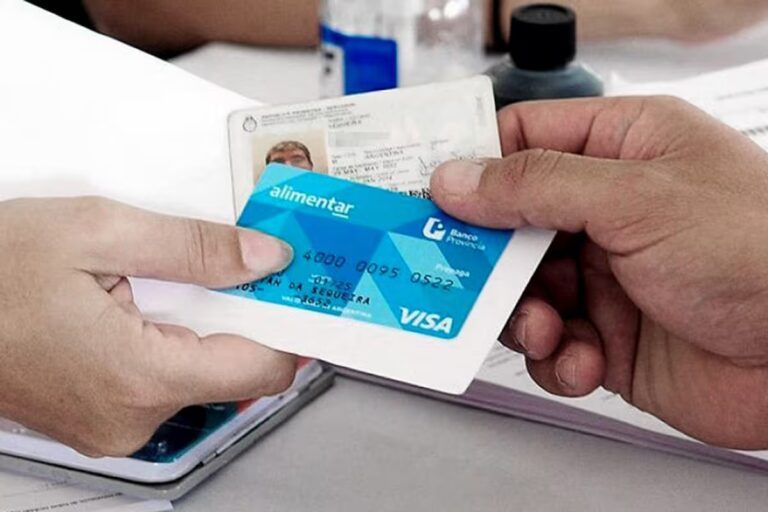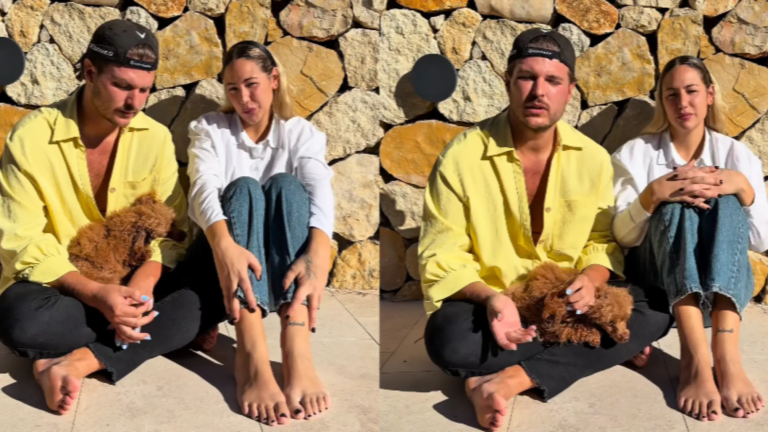
For Argentines, Buenos Aires’ annual Gay Pride celebrations were just a party. But for the Russian gay couple who attended this month’s festival, it was a scene from another planet.
“This is the greatest freedom I’ve ever seen,” said Marat Murzakhanov, 23, from Ufa, Russia, near the Ural Mountains. “We want to stay here.”
He’s not the only one.
Argentina, however remote, has emerged as an important haven for LGBTQIA+ Russians fleeing President Vladimir Putin’s anti-LGBT regime.
Since Russia’s invasion of Ukraine began three years ago, waves of defectors seeking to avoid conscription and repression have moved to neighboring countries such as Georgia, Kazakhstan and Armenia. However, many LGBT+ Russians find it difficult to stay in these places, facing prejudice and a lack of legal protection.
With restrictive visa policies cutting off routes to Europe and the Americas, they scoured the world for a country where they could easily enter and live freely.
The answer was a long-distance flight to the other side of the world.
“When I told my parents I was moving to Argentina, they asked me where it was,” said Anton Floretsky, 29, a programmer from Togliatti, a city in western Russia. “I explained that we are in the southern hemisphere and the stars look completely different.”
Floretsky said he is subject to persecution, attacks and humiliation in Russia because he is gay. Now, at the LGBTQIA+ Pride Parade in Buenos Aires, she is wearing a tank top with the phrase “My Boyfriend is Gay” emblazoned on it, a lace corset and lipstick, singing Argentine gay anthems and sharing empanadas with dozens of Russians.
In recent years, President Putin has stepped up his crackdown on LGBT+ rights in a repression campaign that has accelerated since the outbreak of war in Ukraine in February 2022. In 2023, Russia’s Supreme Court classified the “international LGBTQIA+ movement” as an “extremist organization” on a par with groups such as al-Qaeda, leading to a new wave of repression.
Many gay Russians said this came after years of living in fear. A lesbian woman wore a wedding ring to pretend she had a husband, and a gay man was attacked in a shopping mall because he dyed his hair. Some decided to leave.
In 2022, Floretsky discovered Argentina as a potential destination because it was included in an online archive shared by gay Russians listing potential countries for emigration.
Argentina provided strong protections for LGBTQIA+ people, including same-sex marriage and gender self-determination.
Argentina’s constitution, which is often cited as one of the main reasons for emigration by LGBTQIA+ Russians living in Buenos Aires, states that it welcomes “men from all over the world who wish to live on Argentine soil.”
This constitution was adopted in 1853, at a time when Argentina was trying to populate its vast and sparsely populated territory and open itself to Europeans. Buenos Aires became one of the great immigration centers of the late 19th and early 20th centuries, with the arrival of large numbers of Italians, Spaniards, and Jews, especially from Eastern Europe.
The country’s liberal immigration policies later attracted not only war refugees but also high-ranking Nazi officials seeking to disappear.
Argentina has previously welcomed Russian immigrants, including political dissidents from the former Soviet Union and people seeking refuge after its collapse.
The latest wave began after the war with Ukraine, with the Argentine government recording more than 120,000 Russian arrivals since 2022. The group included many Russian pregnant women seeking a better future and less restrictive passports for their children. While this trend has garnered national attention in Argentina, a parallel, more modest wave of gay and transgender Russians seeking political asylum has received less attention.
“I can be a transgender girl and be myself, and I don’t feel judged,” said Alisa Nikolaev, 24, who grew up in Siberia and moved to Argentina last year.
Still, social inclusion in Argentina is not a priority for the country’s right-wing president, Javier Millei, who opposes what he calls “gender ideology” and stricter immigration rules.
Although he has not sought to abolish same-sex marriage, the government has imposed sweeping austerity measures that have overwhelmed public health programs such as hormone therapy and the provision of HIV drugs.
The tension was palpable at the Pride celebrations, where participants wore hats that read “Make Argentina Gay Again” amid improvised stalls selling beef sandwiches dripping with oil.
“Sometimes I forget that I’m gay when I’m here,” says psychologist Giordani Tardiki, 27.
Floretsky loves walking into a hair salon and finding a gay hairdresser and Lady Gaga playing loudly from the speakers. “I thought, ‘Oh my god, am I in a country where this is normal?’
Although many Russians feel integrated into Argentine society, they are still troubled by the idea that they have to move thousands of kilometers from their homeland to enjoy basic rights.
Antonina Lyshkova, 37, said: “The bad thing about immigration is that our country has no interest in us. Argentina may be interested, but Russia is never interested. It doesn’t matter how much money we make or how smart we are. Russia doesn’t want us.”



